Neurodivergent Travel: One Mom’s Experience and Strategies
Tried-and-true tips for traveling with kids who have unique needs
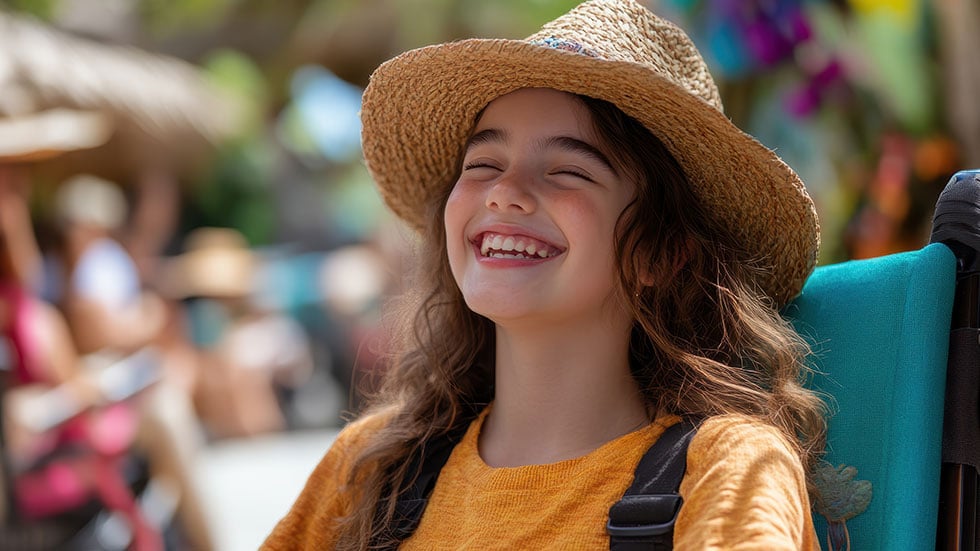
As our electric boat made its way up the Nærøyfjord in southwestern Norway, my 11-year-old daughter’s face lit up. “I love this!” She declared after surveying the towering mountains and waterside villages dotted with colorful houses.
“You love this?” I said, with an equal measure of incredulity and excitement since she usually resists my efforts to leave the comforts of home, friends and routine. A man nearby smiled as if to acknowledge what I was thinking: Magical moments like these make the tiring hours of planning and the plane journeys worth it for parents.
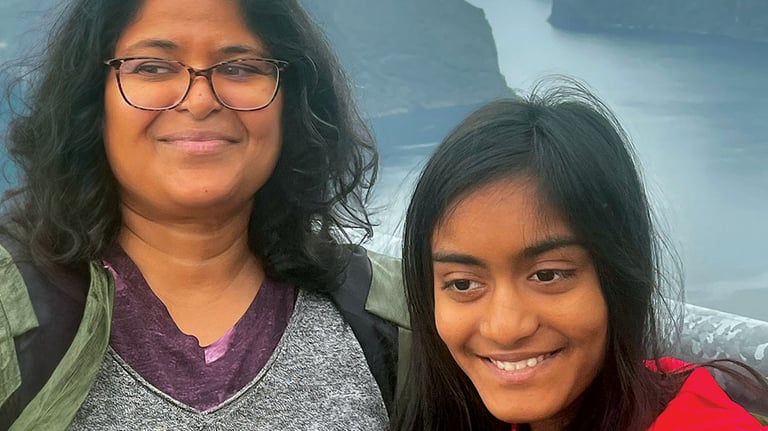
Even the most compliant children can be reluctant travelers, but navigating new time zones, currencies and languages is more challenging with a kid like mine who is neurodivergent, a catchall term to describe individuals who express atypical behavior patterns and/or process information differently. In Muskan’s case, dyslexia affects her ability to absorb written language, while her attention deficit hyperactivity disorder (ADHD) results in her getting bored quickly.
That hasn’t stopped my husband and me from taking Muskan on annual trips, including vacations to Denmark, California and the Azores. But we’ve had to consider her unique needs.
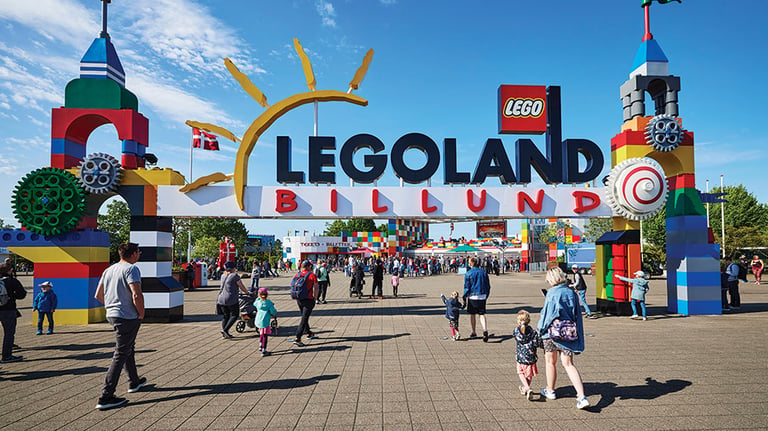
Engaging kids with ADHD
One lesson we’ve learned traveling with Muskan, now 12, is to book activities that align with her hobbies to keep her attention. Engagement for kids with ADHD “tanks when they’re not interested,” says Emily W. King, a Raleigh, North Carolina-based child psychologist who is the mother of two neurodivergent boys, ages 11 and 17, and creator of the Learn With Dr. Emily Substack and podcast dedicated to understanding neurodivergent children.
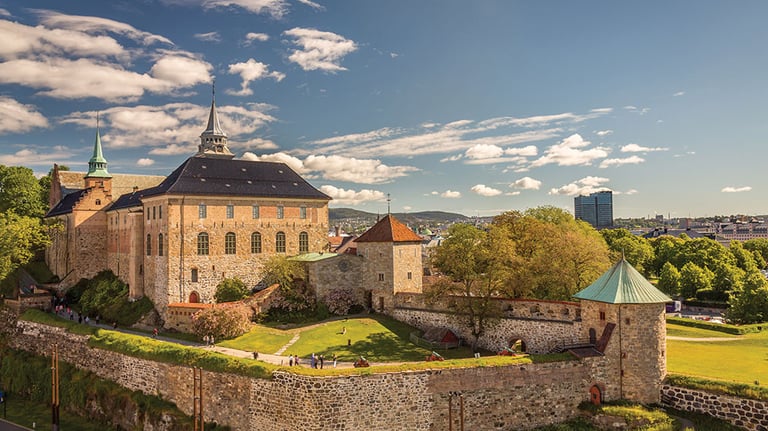
In Oslo, the capital of Norway, we toured the Akershus Fortress, the real-life inspiration for the castle in the two Frozen movies, which Muskan has watched more than a dozen times. As an animal lover, she remembers our dolphin- and whale-watching tour as the highlight of our trip to the Azores. And as someone who can spend hours joining multihued brick-shaped pieces, Muskan will never forget visiting the original LEGOLAND theme park in Billund, Denmark.
Activities must also incorporate physical movement, which improves the mood and concentration of my ADHD kid—and many others, according to numerous studies.
Our trip to Norway included a tour of the Oslo Opera House with its signature sloping design that invites visitors to climb on the roof and feel the attraction beneath their feet—a more profound experience than admiring a building from the ground.
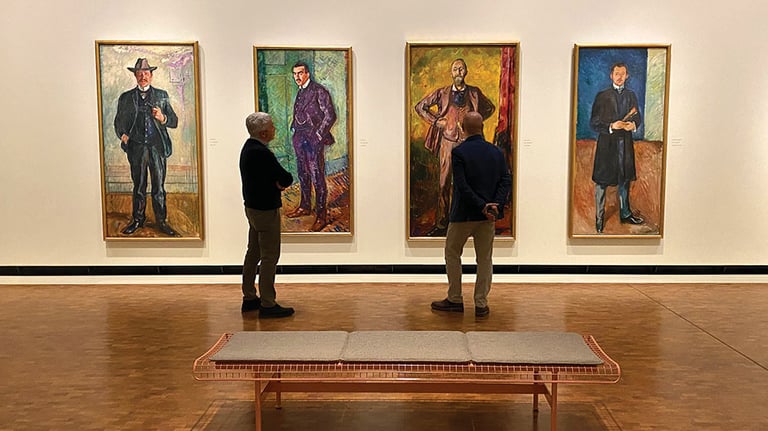
Managing autism and dyslexia
While taking neurodivergent kids to new settings comes with rewards, it presents challenges, too. Children with autism experience anxiety when confronted with unfamiliar places, loud sounds and certain textures. That’s why Kwynn Gonzalez-Pons, a university researcher and instructor, always brings headphones to help her autistic son, age 5, drown out external noises. She also brings devices with downloads of his favorite shows to keep him entertained.
She adds that going over travel plans, including security procedures and the long lines they may encounter, also helps. “We try to prepare him with a lot of information so it’s not overwhelming or scary to him,” says Gonzalez-Pons, who has traveled internationally with her husband and son.
Having a child with dyslexia also requires some careful planning. We seek out attractions that offer multisensory experiences rather than relying on text-heavy displays since Muskan’s dyslexia slows her verbal processing speed. For instance, Oslo’s MUNCH, a museum dedicated to the works of Edvard Munch, featured three-dimensional sets with accompanying light, sound and moving images that re-create the home of the famous Scream painter. Since that experience, Muskan recognizes his most famous work and talks about the artist with her schoolteachers.

The travel industry responds
The good news for parents is that the tourism industry is upping their efforts to meet the needs of neurodivergent kids. On one trip, Gonzalez-Pons and her family rested in the sensory room at the Indianapolis International Airport, a quiet space equipped with headphones and sensory bags filled with stress balls and fidgets.
Disney theme parks have been catering to parents of neurodivergent kids for more than a decade with the Disney Disability Access Service (DAS), which grants people with autism, ADHD and other developmental disabilities a pass so that they can grab a bite to eat or shop for merchandise instead of standing in long lines while waiting their turn at, say, The Haunted Mansion or Festival of the Lion King. Applicants first need to chat with a Disney representative via video for approval before visiting the parks. We took advantage of the program during our 2023 spring break trip, allowing us to experience the gamut of thrill rides, shows and princess meet-and-greets during a busy holiday week.
The benefits of travel
Even with these accommodations and meticulous planning, traveling comes with hiccups. We’ve had our share of meltdowns and times when Muskan was too tired to leave our Airbnb or hotel, even after incorporating rest days.
But the benefits of travel easily outweigh the drawbacks. Kids come back armed with knowledge about science, history or whatever they’re curious about, says King. “In addition to the academic learning, there is a lot of social-emotional learning that happens. It’s really healthy for development.”
Recently, Muskan correctly identified the flags of several countries while playing an ipad game, scoring higher than I did. Impressed, I congratulated her and patted myself on the back. Maybe I had turned her into an intrepid traveler after all.
